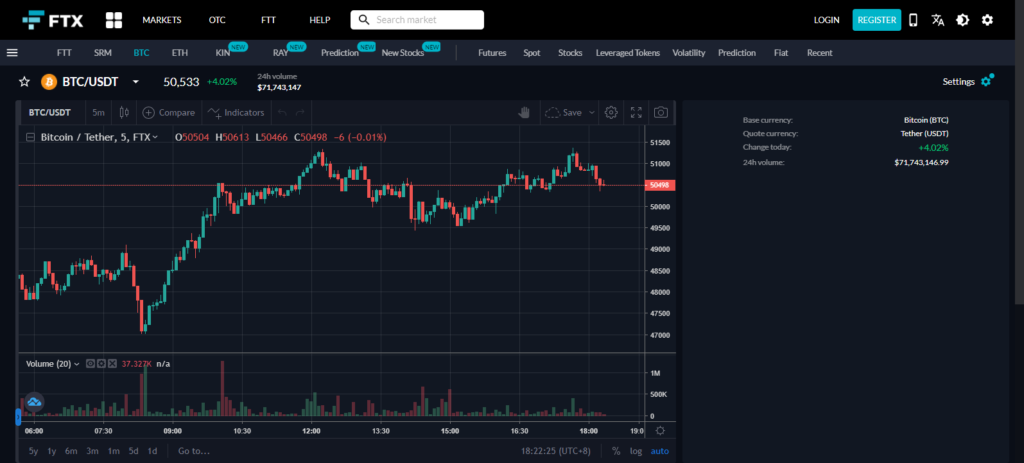Is FTX a Safe Platform to Store and Secure Your Coins?
Update (November 9): While FTX wasn’t hacked, we heavily recommend not depositing any funds on the FTX and FTX.us platform due to insolvency problems.
As always, use a hardware wallet for secure long-term storage.
Though the likes of Coinbase and Binance are still the top bitcoin and cryptocurrency exchanges we have right now, the rising star and the feature-rich exchange— FTX, is definitely quickly catching up despite only launching operations in 2019.
While FTX surely is a great exchange to use by people worldwide, is it actually safe enough to store your coins with?
FTX’s security
- FTX’s password requirements – in the registration phase, FTX requires its users to use passwords that are complex enough for hackers to have difficulty cracking them.
- 2FA requirement – just like most exchanges, FTX requires their users to have 2FA enabled to be able to withdraw their funds, for additional security.
- Proactive CEO – FTX’s CEO, Sam Bankman-Fried a.k.a. “SBF” is known to be really active on Twitter, and actively responds to bug reports. While this is not a guarantee of FTX’s security, it just shows that the CEO is taking exchange feedback and site uptime really really seriously.
- FDIC insured – All USD deposits on FTX’s US arm are FDIC insured.
NOTE: as with any other exchange, crypto deposits aren’t FDIC insured.
So, is FTX actually safe?
Yes and no.
Unlike other exchanges, FTX has only existed since 2019, which makes it a really really young exchange; and unfortunately, there is very little information on the web concerning FTX’s back-end security practices.
Though FTX has been running for 3+ years without seeming to have a single security issue, we really can’t know for sure if they could fend off the hackers for longer amounts of time. Always remember— no matter how big and reputable a certain cryptocurrency exchange is, it doesn’t guarantee that it’ll be secure forever. Exchanges are a very hot target for hackers simply because they hold a lot of coins from their users.
“Not your keys, not your coins”
While this quote is directly referring to bitcoin, it should apply to pretty much every single cryptocurrency. Only use wallets whereas you have control over the private keys/recovery seed. That way, even if the exchanges you use gets hacked, your coins don’t get stolen along with the exchange’s funds.
As always it’s far safer for you to store your funds on a non-custodial wallet; and preferably, a reputable hardware wallet like the Ledger Nano X. That way, even if every single exchange in existence gets hacked, your funds will remain untouched.
Exchanges are exchanges

Use exchanges for their sole purpose, as a platform to exchange your money for some bitcoin and other cryptocurrencies.
Don’t get us wrong — this article isn’t made to trash on FTX. FTX is providing a great service, with them having really cheap exchange fees and withdrawal fees compared to the likes of Binance (we even use FTX ourselves!). The main point is just that you shouldn’t leave all your coins on any exchange.
Simply withdraw your funds after every transaction using exchanges like FTX, the same reason why you wouldn’t leave your hard-earned money on money remittance centers and money exchangers. Instead, you simply withdraw the cash and lock them up in your personal safe or store them in your bank. The same thing should be done with your coins and tokens. Simply send them over to your hardware wallet just to be sure.
P.S. If you don’t have an FTX account yet, you can use our referral link here to help us out and receive an extra 5% discount on trading fees!
Where do I keep my funds instead?
Hardware wallets
We heavily suggest the usage of hardware wallets, especially if you own coins and tokens worth significant amounts of money.
Hardware wallets are small devices made specifically for securely holding your coins and tokens, and are small enough to fit in your pocket. We heavily suggest using a hardware wallet instead, if you’re holding a significant amount of cryptocurrencies. A hardware wallet is definitely your best choice for holding coins and tokens without the fear of getting hacked.
Advantages
- High security – your wallet’s private keys never leave the device. Hence, you could really do transactions even if the computer device you’re using is infested with malware and viruses, as long as you make sure that the coins are being sent to the right address.
Disadvantages
- Less convenient – You need to plug in your hardware wallet to your computer to make a transaction; though fortunately, the new Ledger Nano X has Bluetooth functionality, giving you the option to send transactions using your mobile phone instead.
Some great hardware wallets
- Ledger Backup Pack (recommended)
- Ledger Nano X (recommended)
- Ledger Nano S
- Trezor Model T
- Trezor One
Must read: Bitcoin & Cryptocurrency Wallets: The Good, The Bad, The Ugly.
Conclusion
If there’s one thing that we want you to remember from this article, is this:
Use great and reputable exchanges like FTX to buy, sell, or trade, but use hardware wallets to hold your coins for the long term.
